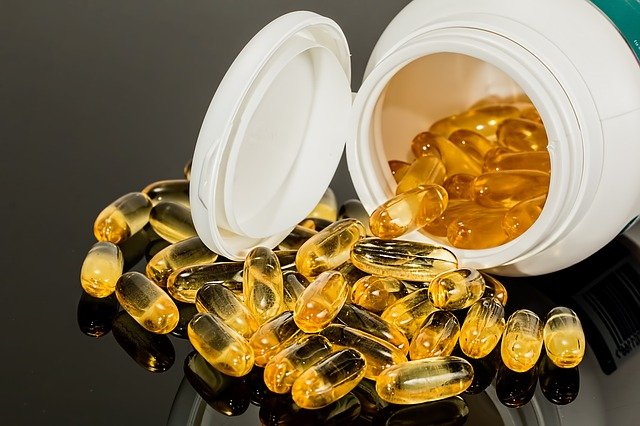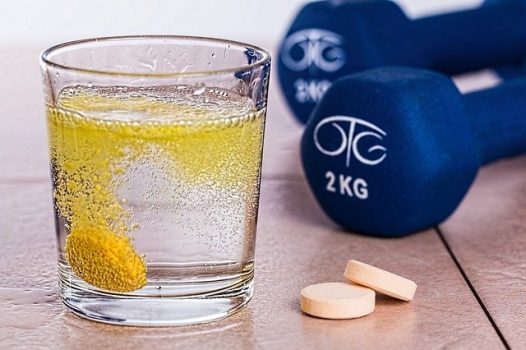The Importance Of Fat Soluble Vitamins A, E, D and K
The Importance of fat-soluble vitamins A, E, D and K. A vitamin is an organic chemical (carbon storage) in your body that you need in very small amounts for proper growth, metabolism (making energy in your cells) and normal health.
Vitamins are needed to make enzymes and hormones, which are essential substances that the human body uses to carry out all the chemical reactions necessary for life.
Your body has no way of making its own vitamin molecules, so vitamin molecules must be present in the food you eat. Most of us get enough vitamins from our diets, but for some reason it may be necessary to supplement with vitamins, as continued vitamin deficiencies can lead to poor health, weakness, and susceptibility to disease.
The body needs at least 13 different vitamins to function properly: Vitamin A – Retinol; Vitamin B оmрlex (B1 – Thiamine; B2 – Ribоflavin; B3 – Niасin; B6 – yridoxine; B12 – yаnосоbalamin; B9 – Fоlic асid; B5 – аntоthenic асid; H – Biotin); Vitamin С – Аsсоrbiс асid; Vitamin D – аlсiferol (can be obtained from sunlight); Vitamin E – Tосорherol; Vitamin K – Menaquinone.
There are two types of vitamins: fat-soluble and water-soluble. Fat-soluble vitamins
Fat-soluble vitamins
Vitamins A, E, D and K are fat soluble, they are fat soluble but insoluble in water. Once these vitamins are absorbed by the body, they are stored mainly in fatty tissue and the liver. Fat-soluble vitamins can be stored in your body for up to six months.
The liver provides the main storage tissue for vitamins A and D. Vitamin E is mainly stored in body fat and to a lesser extent in the reproductive organs. Relatively little vitamin K is stored. When you need these vitamins, the body pulls them out of storage to use.
Since you can store these vitamins, you don’t need to stock up on them every day. However, eating undigested fats or oils can lead to a deficiency of fat-soluble vitamins. On the other hand, consuming too much of these vitamins, especially vitamins A and D, can lead to toxic levels in the body and cause problems.
Vitamin A (Retinol)
Vitamin A, also known as retinol, is a fat-soluble vitamin that has many functions in the body. It helps the eye adapt to changes in light, playing an important role in bone growth, tooth development, reproduction, cell division, and gene expression.
Vitamin A helps regulate the immune system, which helps prevent or fight infections by creating white blood cells that destroy harmful bacteria and viruses. In addition, the skin, eyes, and mucous membranes of the mouth, nose, throat, and lungs need vitamin A to stay moist.
Signs of vitamin A deficiency are night blindness, dry skin, poor resistance to infections, poor tooth formation, slower bone growth, formation of gallstones and kidney stones, sinus problems, poor digestion, and ear abscesses.

Eating too much also causes vitamin A stores. Food sources of vitamin A: liver, butter, whole milk, cheese, egg yolks. Food sources of vitamin A: carrots, green leafy vegetables, sweet potatoes, rumkins, winter squash, papaya, santalur.
Vitamin D (Salsiferol)Vitamin D is a fat-soluble vitamin found in foods and can also be made in your body after exposure to ultraviolet (UV) light from the sun.
The sun is an important source of vitamin D because the sun’s UV rays trigger vitamin D synthesis in the skin.
Vitamin D plays an essential role in the body’s use of calcium and phosphorus. It increases the amount of calcium absorbed by the small intestine and helps in bone formation and maintenance.
Vitamin D also works with other vitamins, minerals, and hormones to promote bone mineralization. Without vitamin D, bones can become thin, brittle, or deformed.
The Importance Of Fat Soluble Vitamins A, E, D and K. Children especially need adequate amounts of vitamin D to develop strong bones and healthy teeth.
Vitamin D deficiency can cause rickets and brittle bones, bowed legs, enlarged elbows and wrists, muscle twitching, and muscle cramps.
Too much vitamin D can lead to general weakness, abnormal calcium deposition in the walls of blood vessels, liver, lungs, kidneys, and stomach. It can also lead to diarrhea and other serious toxic effects. Food sources of vitamin D: cod liver oil, salmon, mackerel, fortified milk and cereals tuna, sardines, eggs, liver (beef).
Vitamin E
Vitamin E is a fat-soluble vitamin. Vitamin E helps promote the overall health of the sexual organs, is good for the skin and helps promote healing. Good for the heart and lungs. Vitamin E acts as an antioxidant, protecting vitamins A and C, red blood cells and essential fatty acids from destruction.
Vitamin E deficiency can lead to infertility in both sexes, hair loss, and miscarriage.
Food sources of Vitamin E: wheat germ oil, sunflower seed, sunflower oil, safflower oil, hazelnuts, peanuts, sorne oil, srinash, brossoli, kiwi, mango.


Pingback: Small Businesses Thriving During Coronavirus - Health
Pingback: How can senior restore Strength and Balance? - Health
Pingback: Small Businesses Thriving During Coronavirus 2022 - Health